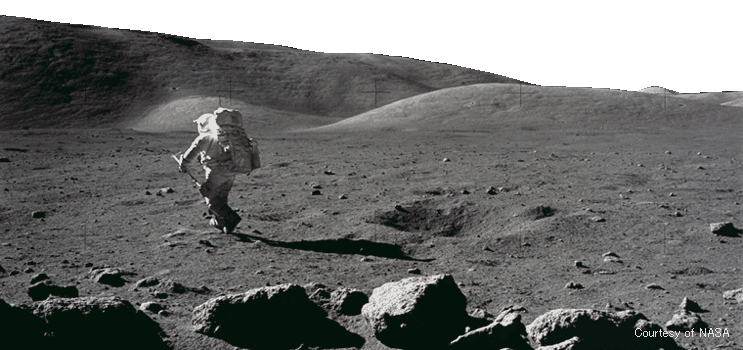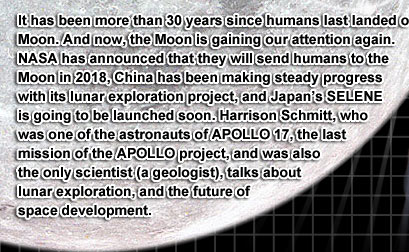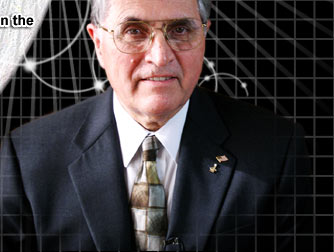 |
 |
 |
 |
 |
 |
What was your feeling when you stepped onto the surface of the moon for the first time? |
|
 |
 |
The first feeling I had was how fortunate I was to have the opportunity to represent not only my country but humankind on the moon. And then the second thought was just how beautiful it was. It's a land of contrast, with brilliantly illuminated slopes from a bright sun, as bright as any sun you've every seen, and then a black sky, just an absolutely black sky. Of course in the sky over the southwestern mountains, which were 2,100 meters high, was this Earth of ours as a three-quarter Earth, a beautiful blue marble in space. |
 |
 |
 |
 |
You were the only scientist to land on the moon. How important is it for scientists to participate in space exploration? |
|
 |
 |
The main reason you want to have a scientist work on the moon, or a specialist work in any area in space, as well as here on Earth, is that they bring a history of experience in their field that can help them work more efficiently and more intelligently on the problem at hand.
The field geologist with 15 years experience is going to be able to decide what is important and what isn't much faster than even a very well trained pilot who does not have that experience. We did train our astronaut pilots to be good observers, to understand the problems they were working on, but there's no substitute for experience, whether it's in medicine or in any other field that might be important in space.
You certainly wouldn't want a geologist operating on your heart. You'd want a doctor with a lot of experience operating on your heart. Well, when you did exploration on the moon you wanted somebody with experience, such as a geologist, to do that exploration. So I think it's very important to have scientists.
It's very important to have human beings in space because they bring a wonderful computer called the brain. They bring a wonderful optical system called the eyes, and they bring hands that can manipulate things as precisely or more precisely than many robots in that environment. There are some things that robots will be able to do much better than humans, particularly when there's just routine information to be gathered. But we would be very remiss if we didn't use the best of robots and the best of human beings in space. |
 |
| |
|
|
 |











